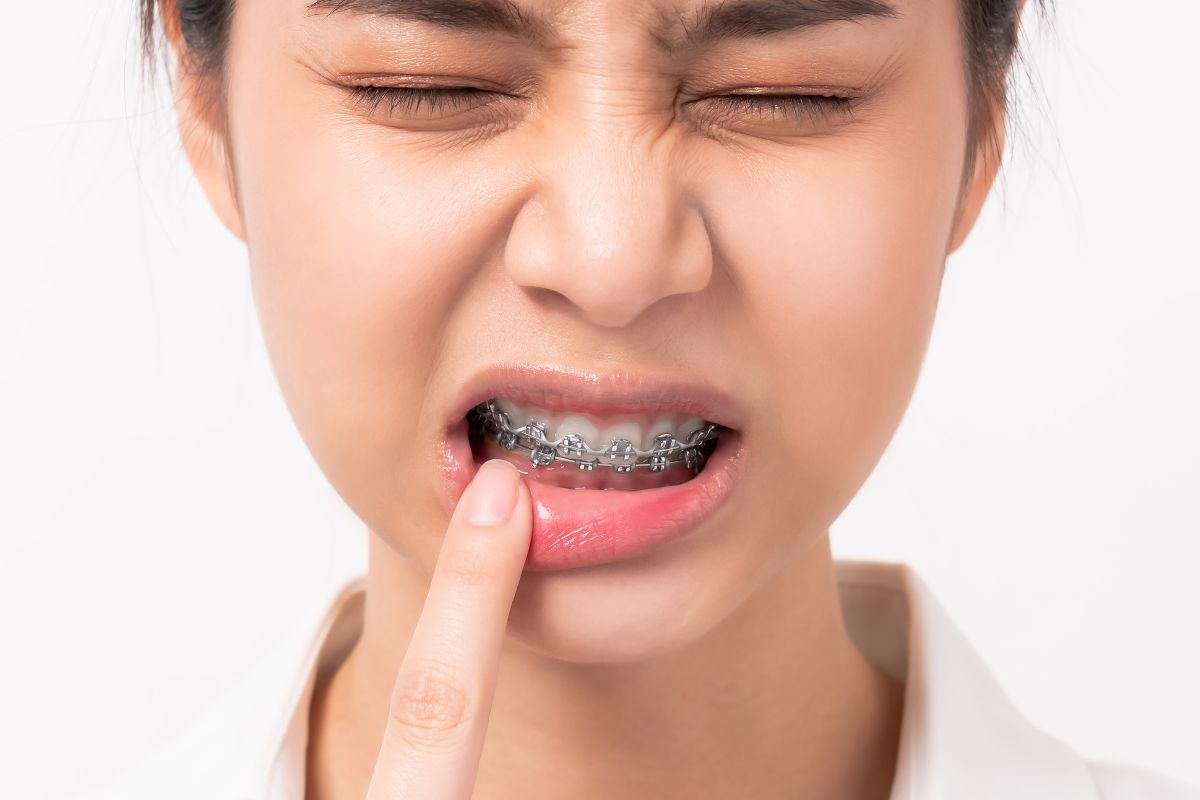Optimal oral health is crucial to overall well-being. After all, the mouth is the first organ of the digestive system. However, you may encounter several oral conditions, from tooth decay to gum disease. Mouth cancer is a more serious condition that may lead to grave complications in the long run.
Unfortunately, oral cancer is more common than you imagine. Statistics show that the lifetime risk of oral cavity and oropharyngeal cancer is as high as 1 in 60 for men. In women, it may happen to 1 in 141 individuals. Estimates project that the condition will claim 11,580 lives in the United States in 2023. 1
The numbers are disconcerting, but timely diagnosis and treatment of oral cancer can save lives. Awareness of the early signs of mouth cancer can go a long way in reducing the incidence of fatalities. Most of these signs are distinguishable, making it possible to detect oral cancer at home.
With this article, we will share insights on how to detect oral cancer and seek help sooner rather than later. Let us discuss the condition, its symptoms, causes, and treatment in detail.
Early Signs of Mouth Cancer: How Can You Detect Oral Cancer at Home
Oral cancer affects a sizable part of the senior population; with the median age of diagnosis being 62 years. However, some risk factors and lifestyle mistakes can make younger people susceptible to the condition. 2
The disease may affect your lips, tongue, mouth roof, and floor. It may also extend to the oropharynx- the last part of the tongue, the tonsils, and the back and side of your throat. While the positioning of oral cancer seems quite evident, you may not know about the problem until it reaches an advanced stage.
Here are a few signs of mouth cancer you should watch out for to ensure timely detection and treatment: 3
- A sore, lump, or persistent irritation in your mouth, throat, or lip
- A thick patch (red or white) in your mouth
- A lump in the neck
- Numbness in your tongue or mouth
- Persistent sore throat, hoarseness or loss of voice, or a feeling of something being caught in your throat
- Difficulty moving your tongue or jaw
- Difficulty swallowing, chewing, or speaking
- Pain or bleeding in the mouth
- Swelling of the jaw causing a poor fit or discomfort with your dentures
- Ear pain

Given the high mortality of the disease, early diagnosis is crucial. If any of these early signs of mouth cancer persist for a few weeks, you should see a specialist at the earliest. According to the WHO, a biopsy is recommended for any lesion that does not subside within two weeks of removing the local causes of irritation. At this point, your healthcare provider might perform a surgical biopsy. 4
Timely detection and treatment are essential because untreated oral cancer can spread to other areas of the mouth and throat. It may even reach your head and neck. Statistics show that late-phase detection significantly reduces the chances of cure, resulting in only 20% five-year survival rates. 5
Causes and Risk Factors of Oral Cancer
Oral cancer begins in the squamous cells of the mouth. When the DNA of these cells starts changing, they grow and multiply rapidly. Soon, these cancerous cells spread throughout the mouth and eventually extend to the neck and head. This is a multi-step process, starting with some changes in the normal mucosa and continuing until invasive cancer and metastasis develop. 6
While some people may develop oral cancer due to family history, most risk factors for it are lifestyle-generated. Here are a few you should be aware of:
- Prolonged use of tobacco with cigarettes, cigars, snuffs, or water pipes
- Excessive alcohol consumption
- Exposure to UV radiation (causing lip cancer)
- Chronic oral inflammation
- Human papillomavirus (HPV) or Candida infections
- Immunosuppression in patients with bone marrow transplantation or renal transplant
Notably, 25% of individuals developing oral cancer do not have the known risk factors. It makes the disease challenging for patients and providers because risk persists despite a healthy lifestyle. 7

Diagnosis of Oral Cancer
Although you know how to detect oral cancer at home now, you cannot rely on self-diagnosis. You must seek an expert diagnosis from a qualified healthcare provider to confirm or rule out the condition for sure. Your bi-annual dental exam is a good time to have the examination. Alternatively, you can consult your doctor if you notice one or more of the early signs of mouth cancer.
Early detection is important because oral cancer can spread rapidly. Here are the diagnostic tests you can expect:
Physical Exam
Your doctor or dentist will check your mouth, tongue, throat, and lips to look for abnormalities, such as patches (leukoplakia), sores, or areas of irritation. The procedure is painless and hardly takes a few minutes.
Biopsy
If your dentist or doctor finds a suspicious area, they may remove a sample of cells or tissue for laboratory testing. The biopsy involves cutting away a sample with a cutting tool or removal with a needle. The cells are analyzed in the laboratory to test for cancer or precancerous changes indicating the future risk.
Endoscopy
Your specialist may perform an endoscopy to inspect your throat with a small flexible camera. The procedure is recommended to check whether the cancer has spread to the throat.
Imaging
Imaging tests such as X-ray, MRI, CT, and positron emission tomography (PET) scans are used to determine the spread of cancer and its stage. Not everyone requires the same tests, and the doctor determines the best ones according to your condition. 8
Mouth cancer stages vary from Stage 1 through 4. A smaller cancer limited to one area is defined as stage 1. A higher stage indicates a larger cancer, with Stage 4 showing that the cancer has spread to the neck, head, or other areas of the body. 9

Treatment Options: How Can Mouth Cancer Be Treated?
Once you get a confirmed diagnosis, the next obvious question is how can mouth cancer be treated. There is no one-size-fits-all answer to this one because treatment options depend on the stage and location of your oral cancer. Likewise, survival rates also vary from person to person.
The 5-year relative survival rate for individuals diagnosed at an early stage is 86%. However, unfortunately, only 28% of oral cancers are diagnosed at this stage. The survival rate falls to 69% if the cancer spreads to other areas. 10
Your doctor may recommend one of the following treatment options or a combination of them according to your condition.
Surgery
Surgery may include the removal of the tumor along with a margin of the surrounding healthy tissue. Larger ones may also necessitate the removal of the jawbone. Your surgeon may recommend cutting away lymph nodes and neck tissue if the cancer cells have spread in your neck area. Reconstructive surgery may be required to rebuild your mouth to restore functions such as eating and talking. 11
While surgery can be life-saving, it carries a risk of infection and bleeding. It may also affect your appearance and the ability to speak, eat, and swallow. Some patients require feeding with a tube from the nose and into the stomach. For long-term use, a tube through the skin and into the stomach may be required for feeding.
Radiation Therapy
Radiation therapy is another treatment often recommended at a follow-up after surgery. Some early-stage cancer patients may be treated with radiation therapy alone. It relies on high-energy beams to kill cancer cells. It may also be combined with chemotherapy for better results.
Radiation therapy may have side effects such as tooth decay, dry mouth, and damage to your jawbone. A visit to your dentist is the first stage of the treatment. At this stage, the dentist treats or removes unhealthy teeth and offers dental care advice to minimize your risk of complications. 12

Chemotherapy
Chemotherapy is another line of treatment that kills cancer cells using chemicals (chemotherapy drugs). The procedure improves the outcomes of radiation therapy, so your specialist may recommend them together.
When it comes to side effects, chemotherapy often causes hair loss, nausea, vomiting, and loss of appetite. You should discuss the possible complications with your specialist to have realistic expectations. 13
Immunotherapy
With immunotherapy, your immune system works to fight cancer. The therapy stimulates your immune system, which otherwise fails to attack the cancer cells as they produce proteins blinding the immune system cells. Immunotherapy treatments are recommended for patients with advanced-stage mouth cancer that does not respond to standard treatments. 14
Targeted Drug Therapy
With this therapeutic option, you are prescribed targeted drugs that treat oral cancer by altering the cells that fuel its growth. These drugs are used alone or combined with other therapies. Side effects of targeted drugs include headache, diarrhea, skin rash, itching, and infections. 15

Oral Cancer and Invisalign Treatment
While there isn’t a direct link between oral cancer and Invisalign treatment, regular dental checkups can help with early diagnosis. Even the most vigilant people may miss out on the signs of mouth cancer, but a dentist can surely identify them. If you are undergoing treatment at a Boston Invisalign clinic, you can get a head start with the detection of these signs.
Every time you visit your specialist for an Invisalign appointment, you get a thorough oral check as a part of the deal. Raise concerns if you have any or listen to your dentist and follow their recommendations. Invisalign can do more than restore a beautiful smile; it can be your first line of defense against mouth cancer.
Conclusion
Mouth cancer is a silent killer as it can strike out of nowhere. The early signs of mouth cancer are subtle, so you may easily miss them. However, awareness makes you more vigilant about these symptoms. Also, ensure that you don’t get complacent about these signs, no matter how insignificant they are. Seeing a specialist for an early diagnosis and timely treatment can save you from advanced-stage mouth cancer.
- https://www.cancer.org/cancer/types/oral-cavity-and-oropharyngeal-cancer/about/key-statistics.html#:~:text=These%20cancers%20are%20more%20than,1%20in%20141%20for%20women.
- https://www.cdc.gov/oralhealth/basics/adult-oral-health/adult_older.htm
- https://www.nidcr.nih.gov/health-info/oral-cancer
- https://pubmed.ncbi.nlm.nih.gov/33302498
- https://www.ncbi.nlm.nih.gov/pmc/articles/PMC6659542/
- https://www.ncbi.nlm.nih.gov/pmc/articles/PMC8000242/
- https://my.clevelandclinic.org/health/diseases/11184-oral-cancer
- https://www.mayoclinic.org/diseases-conditions/mouth-cancer/diagnosis-treatment/drc-20351002
- https://www.cancerresearchuk.org/about-cancer/mouth-cancer/stages-types-grades/number-stages
- https://www.cancer.net/cancer-types/oral-and-oropharyngeal-cancer/statistics
- https://www.cancerresearchuk.org/about-cancer/mouth-cancer/treatment/surgery/types-surgery
- https://www.cancer.org/cancer/types/oral-cavity-and-oropharyngeal-cancer/treating/radiation-therapy.html
- https://pubmed.ncbi.nlm.nih.gov/29126496/
- https://www.cancer.org/cancer/types/oral-cavity-and-oropharyngeal-cancer/treating/immunotherapy.html
- https://www.cancer.org/cancer/types/oral-cavity-and-oropharyngeal-cancer/treating/targeted-therapy.html
%202.svg)



